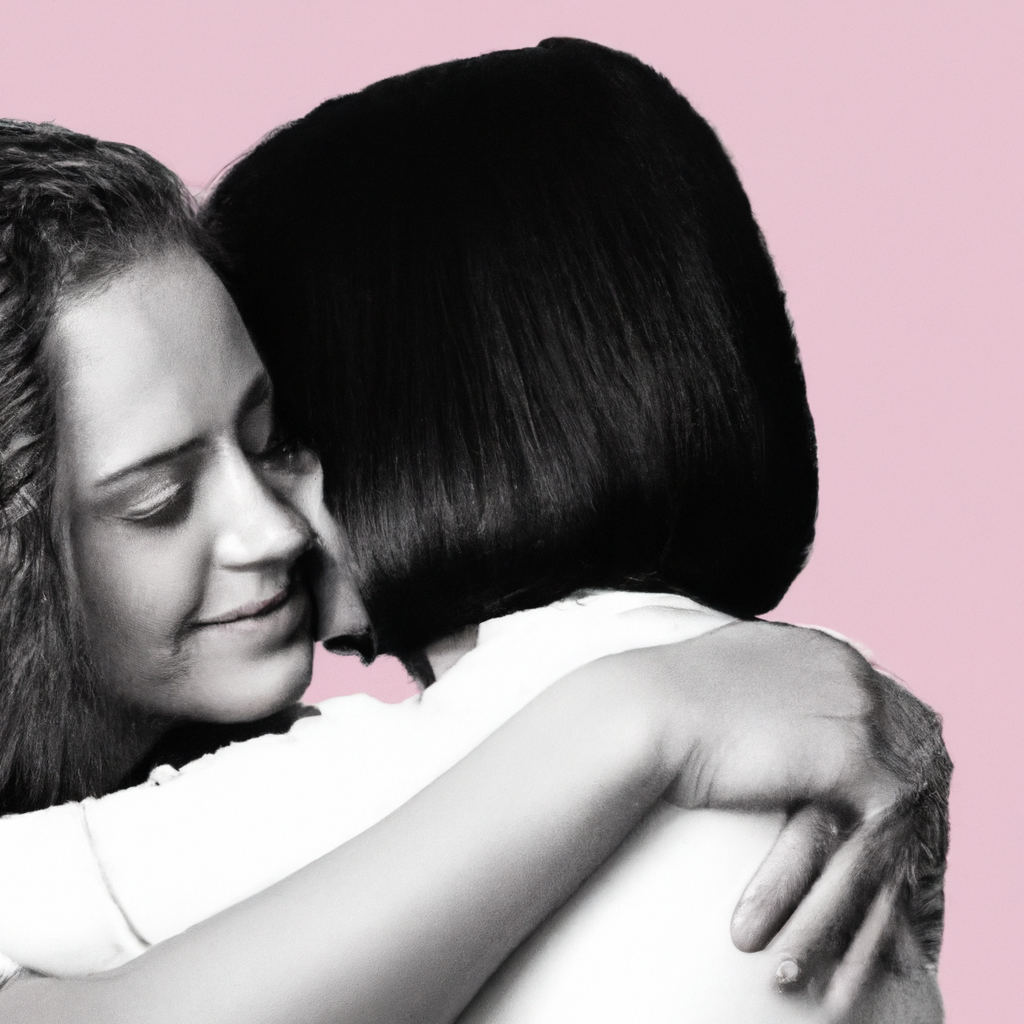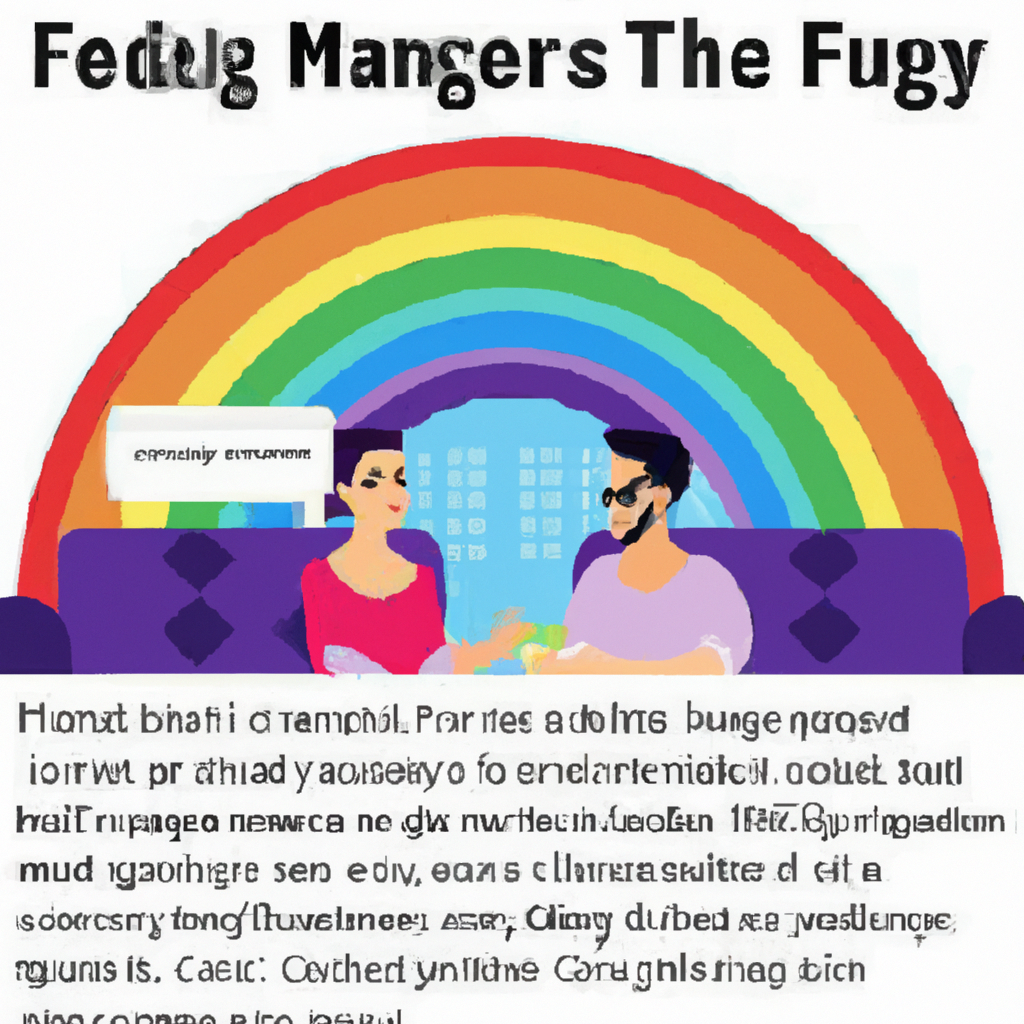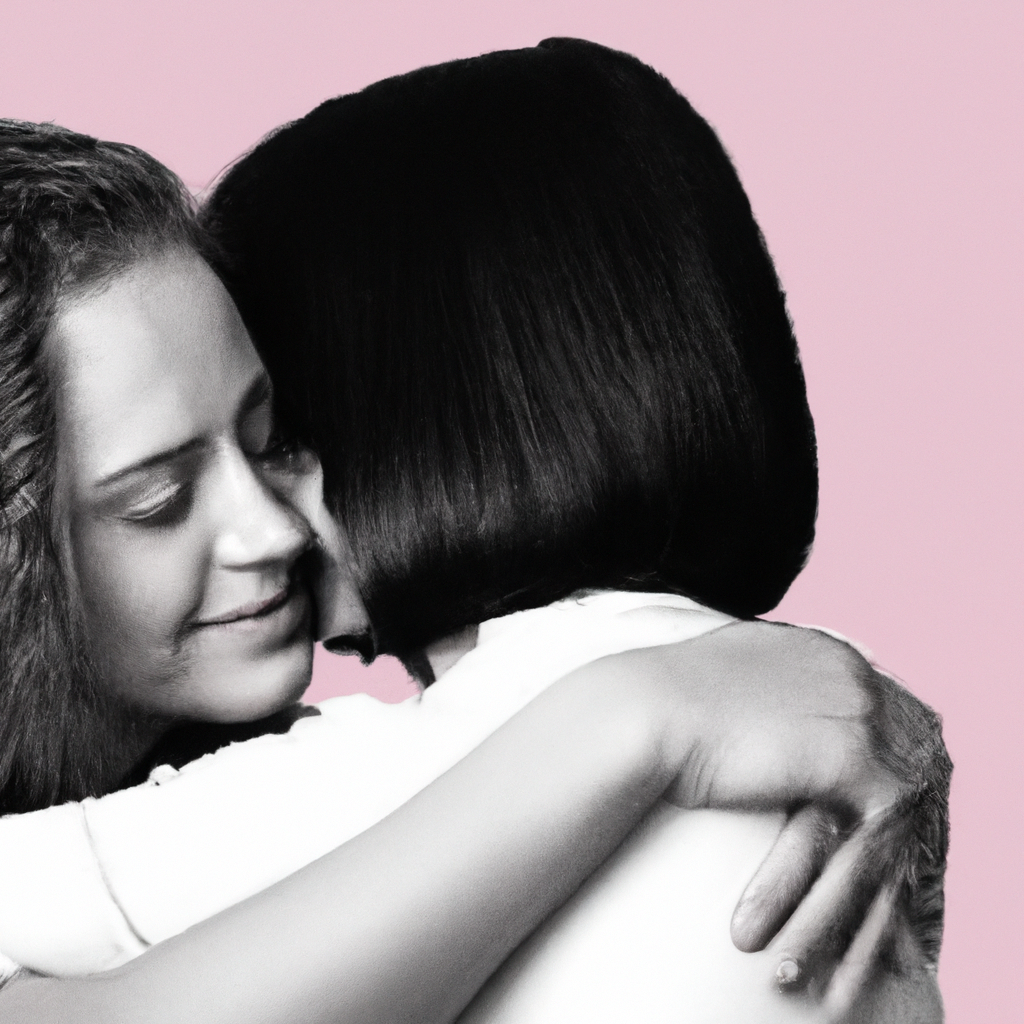
In today’s diverse and inclusive society, finding a marriage counselor or therapist who is knowledgeable, understanding, and supportive of LGBTQ+ couples is crucial. When faced with the external challenges that are unique to LGBTQ+ marriages, it becomes even more vital to seek professional help from someone who can provide the understanding and guidance needed to keep your bond strong. But how can you find an LGBTQ+-friendly marriage counselor or therapist? Let’s explore some strategies and resources that can help you on your journey towards finding the right professional who will provide the support you and your partner deserve.

Understanding the Importance of LGBTQ+-Friendly Marriage Counselors and Therapists
Marriage counseling is an invaluable resource for couples facing challenges and seeking assistance in strengthening their bond. However, for LGBTQ+ couples, finding a marriage counselor who is not only qualified but also LGBTQ+-friendly can be an additional obstacle. LGBTQ+-friendly marriage counselors and therapists play a crucial role in providing a safe and supportive environment where the unique needs and concerns of LGBTQ+ couples can be addressed effectively.
The need for LGBTQ+-friendly marriage counselors
LGBTQ+ individuals face their own set of challenges and obstacles, including stigma, discrimination, and societal biases. When these individuals enter into marriages or committed relationships, they may encounter additional hurdles specific to their sexual orientation or gender identity. As a result, seeking the guidance and support of a therapist who is knowledgeable and understanding of these circumstances becomes essential.
LGBTQ+-friendly marriage counselors possess the knowledge and sensitivity required to create an inclusive space for LGBTQ+ couples. They understand the dynamics of these relationships and the external factors that may impact them. By providing affirming and validating support, they can help couples navigate the unique challenges they face and foster growth within the relationship.
Challenges faced by LGBTQ+ couples in finding supportive therapists
Unfortunately, finding LGBTQ+-friendly marriage counselors can be a daunting task for many couples. The insufficient representation of LGBTQ+ individuals within the mental health profession often leads to a scarcity of therapists who are knowledgeable about the specific issues faced by this community. Additionally, the fear of encountering bias or ignorance may prevent couples from seeking therapy altogether.
LGBTQ+ couples may also encounter therapists who lack cultural competency or hold prejudiced beliefs. This can lead to an uncomfortable and unproductive therapeutic experience, potentially exacerbating the challenges the couple is already facing. It is crucial, therefore, to proactively research and evaluate potential therapists to ensure their LGBTQ+-friendliness and competency.
Researching LGBTQ+-friendly Marriage Counselors and Therapists
To find a suitable LGBTQ+-friendly marriage counselor, it is important to explore various resources and conduct thorough research. Here are some effective strategies to consider:
Online directories and databases
Online directories and databases specifically tailored to LGBTQ+ individuals and couples can be an invaluable resource. These platforms allow users to search for therapists who specialize in LGBTQ+ issues, providing information regarding their qualifications, areas of expertise, and LGBTQ+-affirmative approach. Examples of such directories include Psychology Today’s LGBTQ+ Therapist-Specific Directory and the Gay and Lesbian Medical Association (GLMA).
Referrals from LGBTQ+ organizations
Local LGBTQ+ organizations or community centers often maintain connections with professionals who are experienced in working with LGBTQ+ individuals and couples. These organizations can provide referrals to trusted therapists who are LGBTQ+-friendly. Seeking out recommendations from these community sources can significantly increase the chances of finding a therapist who not only understands the unique challenges faced by LGBTQ+ couples but is also committed to providing affirming care.
Personal recommendations
Reaching out to friends, family members, or acquaintances within the LGBTQ+ community can be a valuable source of information. People who have had positive experiences with LGBTQ+-friendly therapists can recommend them based on their own firsthand knowledge. Personal recommendations carry weight and can provide reassurance when seeking therapy.
Evaluating Potential LGBTQ+-friendly Marriage Counselors and Therapists
Once a list of potential therapists has been compiled, it is crucial to evaluate them thoroughly to ensure they are LGBTQ+-friendly and a good fit for the couple’s needs. Consider the following aspects when assessing potential therapists:
Reviewing credentials and qualifications
Check the therapist’s credentials, such as their educational background and certifications. Look for indications that they have received specialized training in LGBTQ+ issues or have experience working with LGBTQ+ individuals and couples. Credentials can provide insight into the therapist’s level of expertise and dedication to supporting the LGBTQ+ community.
Assessing experience and expertise in working with LGBTQ+ couples
Experience in working with LGBTQ+ couples is a key factor to consider. Ask potential therapists about their experience, the number of LGBTQ+ couples they have worked with, and their approaches to addressing the unique challenges faced by LGBTQ+ couples. A therapist who has a deep understanding of these dynamics is more likely to provide effective guidance and support.
Considering therapeutic approach and techniques
Different therapists may employ varying therapeutic approaches and techniques. It is important to find a therapist whose therapeutic style resonates with the couple. Some therapists may prefer a more directive approach, while others may focus on fostering a collaborative and supportive environment. Discussing the therapist’s approach during the initial consultation can help determine if it aligns with the couple’s preferences and needs.
LGBTQ+-Affirmative Therapy and Its Importance
LGBTQ+-affirmative therapy is an approach that recognizes and validates the experiences, identities, and rights of LGBTQ+ individuals and couples. It is based on the understanding that LGBTQ+ individuals have unique needs and experiences, often shaped by societal prejudice and discrimination. LGBTQ+-affirmative therapy is essential for LGBTQ+ couples seeking marriage counseling as it provides a safe and inclusive space, free from judgment or bias.
Understanding the concept of LGBTQ+-affirmative therapy
LGBTQ+-affirmative therapy involves therapists who demonstrate respect for and affirmation of their clients’ sexual orientations, gender identities, and relationships. This therapeutic approach is designed to counteract the negative experiences of minority stress and promote positive mental health outcomes.
In LGBTQ+-affirmative therapy, therapists promote an empowering environment by allowing clients to share their experiences openly and without fear. By understanding the specific challenges faced by LGBTQ+ couples, therapists can tailor their interventions and provide guidance to address these unique issues effectively.
Benefits of LGBTQ+-affirmative therapy for couples
Engaging in LGBTQ+-affirmative therapy can have numerous benefits for LGBTQ+ couples. It creates a foundation of understanding and acceptance, allowing couples to explore and navigate the challenges specific to their identities and relationships. By working with a therapist who is knowledgeable and LGBTQ+-friendly, couples can develop healthier communication strategies, strengthen their bond, and learn coping mechanisms to overcome external stressors.
LGBTQ+-affirmative therapy also offers an opportunity for couples to challenge internalized stigma, explore their individual identities within the relationship, and foster a sense of validation and empowerment. It creates a space where the couple can discuss their concerns, experiences, and goals freely, without fear of judgment.

Navigating Insurance and Affordability
Concerns about insurance coverage and affordability can sometimes pose additional barriers to accessing LGBTQ+-friendly marriage counseling. It is important to explore different options and strategies to ensure therapy remains financially feasible.
Checking insurance coverage for therapy services
Start by reviewing your insurance policy to determine if it covers mental health services, including marriage counseling. Contact your insurance provider to discuss the details of coverage, such as reimbursement rates and any restrictions that may apply. Ask for a list of in-network therapists who specialize in LGBTQ+ issues to narrow down your search.
Considering sliding scale options and payment plans
Some therapists offer sliding scale fees based on income, making therapy more affordable for those with lower financial resources. Inquire about these options during the initial consultation and discuss potential payment plans, to find a therapist who can accommodate your financial situation.
Additionally, some LGBTQ+ community centers or nonprofits may offer free or low-cost counseling services specifically for LGBTQ+ individuals and couples. Research local resources to identify any such services available in your area.
Conducting Initial Consultations with Potential Therapists
Once a couple has narrowed down potential therapists, scheduling an initial consultation is essential to determine if the therapist is the right fit. Here’s how to make the most out of these consultations:
Preparing for the consultation
Before the consultation, discuss with your partner and make a list of concerns, goals, and questions to address during the meeting. Consider what you hope to gain from therapy and any specific issues related to your LGBTQ+ identity that you would like to explore. This preparation will help guide the conversation and ensure all important aspects are discussed.
Discussing LGBTQ+-specific concerns and goals
During the consultation, openly discuss your LGBTQ+-specific concerns and goals. Explain what led you to seek therapy and the challenges you face as a couple. Share any experiences or fears related to discrimination or stigma. A competent and LGBTQ+-friendly therapist will provide a compassionate and empathetic response while ensuring they understand the unique aspects of your relationship.
Assessing the therapist’s response and rapport
Observe the therapist’s response and assess if they create a safe and affirming environment. Pay attention to their professionalism, empathy, and ability to listen actively. Building a strong therapeutic alliance is crucial, and it is essential to feel comfortable and understood by the therapist. A positive rapport will contribute to a more productive and successful therapeutic experience.
Seeking LGBTQ+ Community Recommendations and Support
Joining LGBTQ+ support groups and online communities can provide valuable opportunities to seek advice and recommendations from others who have been through similar experiences. Connect with others who have sought therapy and ask about their experiences with specific therapists. The LGBTQ+ community has a wealth of knowledge and firsthand experiences that can guide and support you in your search for an LGBTQ+-friendly marriage counselor.
Creating connections within the community can also reduce feelings of isolation and provide a support system where individuals can share their thoughts, concerns, and victories. The LGBTQ+ community is often united in providing resources and recommendations to help one another thrive in all aspects of life, including nurturing healthy relationships.
Considering Teletherapy as an Option
Teletherapy, the provision of therapy through video or phone calls, has become increasingly popular and accessible, especially in light of the COVID-19 pandemic. It offers several benefits that make it a viable option for LGBTQ+ couples seeking therapy.
Exploring the benefits and convenience of teletherapy
Teletherapy provides convenience, as couples can engage in therapy from the comfort and privacy of their own home. This eliminates the need for commuting and allows access to therapists who may not be geographically close but are experienced in serving LGBTQ+ individuals and couples. Teletherapy also removes potential barriers related to mobility, transportation, or a lack of LGBTQ+-friendly therapists in the immediate vicinity.
Finding LGBTQ+-friendly teletherapy platforms
When considering teletherapy, it is important to ensure the platform being used is LGBTQ+-friendly and provides a secure and confidential environment. Research various teletherapy platforms and read reviews to determine if they prioritize the unique needs and concerns of LGBTQ+ individuals and couples. Look for platforms that have been recommended or endorsed by LGBTQ+ organizations or community centers.
Advocating for LGBTQ+ Rights in Therapy
LGBTQ+ individuals have the right to receive affirming and unbiased care in therapy, just as in any other aspect of their lives. It is important to be aware of your rights as an LGBTQ+ individual and advocate for them when seeking therapy. Understanding your rights can help you identify any potential discrimination or prejudice and address it appropriately.
Knowing your rights as an LGBTQ+ individual
Familiarize yourself with the laws and regulations in your jurisdiction that protect the rights of LGBTQ+ individuals and prohibit discrimination based on sexual orientation and gender identity. This knowledge will empower you to identify and respond to any discriminatory behavior or practices during therapy sessions.
Addressing any potential discrimination or prejudice in therapy sessions
If you encounter discriminatory or prejudiced behavior from your therapist, it is crucial to address it directly and assertively. Clarify your expectations of LGBTQ+-affirming care and express your concerns. If the issue persists or is not resolved satisfactorily, consider finding a new therapist who can better meet your needs. Remember that you deserve a therapist who respects and supports your unique experiences and identity.
The Importance of Self-Care in LGBTQ+ Marriages
Maintaining a strong and healthy bond in an LGBTQ+ marriage requires attention to self-care on both an individual and couple level. Self-care practices can help navigate the external challenges that are unique to LGBTQ+ marriages and strengthen the relationship.
Prioritizing individual and couple self-care practices
Self-care practices can vary greatly from person to person, but they all share the common goal of promoting well-being and balance. Engaging in activities that bring joy and relaxation, such as hobbies or exercise, can help alleviate stress and foster resilience within the relationship. Communication, emotional support, and quality time spent together are also essential for nurturing the bond within the couple.
Seeking additional support when needed
There may be times when additional support is necessary to navigate the challenges faced by LGBTQ+ couples. Seeking therapy as a couple or individually, even during times of stability, can be beneficial in creating a stronger foundation and addressing any lingering concerns. Marriage counselors who specialize in LGBTQ+ issues can provide guidance, help couples develop effective coping strategies, and offer insights into the unique dynamics of LGBTQ+ relationships.
In summary, finding an LGBTQ+-friendly marriage counselor or therapist who is knowledgeable, understanding, and affirming is crucial for LGBTQ+ couples. Through diligent research, evaluating potential therapists, seeking community recommendations, and advocating for LGBTQ+ rights, couples can find the support they need to strengthen their bond and overcome the unique challenges they face. By prioritizing self-care practices and seeking additional support when required, couples can lay the foundation for a healthy and resilient LGBTQ+ marriage.




